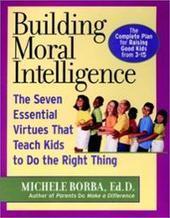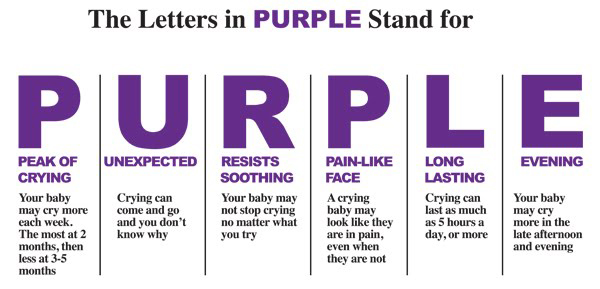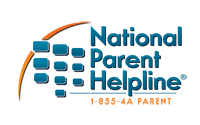Behavior & Development
One area where parents often get into trouble is in not knowing what is age-appropraite
behavior/development.
 Anger Management Strategies for Kids by Dr Michele Borba
Great tips for kids -- and for anyone who has trouble managing their anger. Our
children are facing much more pressing types of daily stresses than most of us ever
dealt with in our childhood. Just think of the kinds of horrific images our kids
are exposed to on the nightly news: riots, hate crimes, random shootings, bombings,
kidnappings, senseless murders. What can parents do? Teach children the critical
virtue of self-control so they know how to handle their emotions appropriately when
faced with frustrations.
Anger Management Strategies for Kids by Dr Michele Borba
Great tips for kids -- and for anyone who has trouble managing their anger. Our
children are facing much more pressing types of daily stresses than most of us ever
dealt with in our childhood. Just think of the kinds of horrific images our kids
are exposed to on the nightly news: riots, hate crimes, random shootings, bombings,
kidnappings, senseless murders. What can parents do? Teach children the critical
virtue of self-control so they know how to handle their emotions appropriately when
faced with frustrations.
Purple Crying
is the time between when an infant is 2 weeks old and 3-4 months old where they
cry a lot. Some parents are told that their babies have colic. It is a difficult
time to get through for many parents—and is a time of increased risk for parental
frustration being taken out on the infant. PurpleCrying.info offers information and
resources to help parents get through this period.

 Zero to Three
is a a national nonprofit organization that informs, trains and supports professionals,
policymakers and parents in their efforts to improve the lives of infants and toddlers.
They focus (as the name suggests) on ages zero through three—and include information
on development as well as dealing with challenging behaviors during
those ages.
Zero to Three
is a a national nonprofit organization that informs, trains and supports professionals,
policymakers and parents in their efforts to improve the lives of infants and toddlers.
They focus (as the name suggests) on ages zero through three—and include information
on development as well as dealing with challenging behaviors during
those ages.
 PBS has
a wonderful website that deals with school age development.
PBS has
a wonderful website that deals with school age development.
 Virginia Tech
has a good list on development of adolescents
(13+).
Virginia Tech
has a good list on development of adolescents
(13+).
 The Child Welfare Information
Gateway is a US Government run site with tons of information
on its website. Here are their tip sheets
for parents and caregivers.
The Child Welfare Information
Gateway is a US Government run site with tons of information
on its website. Here are their tip sheets
for parents and caregivers.
 National Parent Helpline
National Parent Helpline
Parents want to be good parents—but sometimes don't know where to turn to
for help. The National Parent Helpline and website really can help. Asking for help,
is a sign of strength. Their website is filled
with information on parenting as well as state-specific resources. Their helpline
provides “emotional support from a trained Advocate” to help you “become
empowered and a stronger parent.” 1-855-4A-Parent
 Lives in the Balance by Dr. Ross
Green
Lives in the Balance by Dr. Ross
Green
Dr. Ross Greene is a Harvard-based psychologist who has worked with many kids with
behavioral issues. He is the originator of the Collaborative Problem Solving (CPS)
approach. His philosophy is that “Kids do as well if they can.” Children
want to do well, they don’t misbehave to upset us—rather they don’t
have the skill-set to act appropriately. His website is filled
with lots of free lectures, videos, and materials.
 The Kazdin Method By Dr. Alan
Kazdin
The Kazdin Method By Dr. Alan
Kazdin
Dr. Alan Kazdin is a Yale-based Professor of Psychology and the Director of Yale’s
Parenting Center. He was the 2008 President of the American Psychological Association
and is the author of many professional-audience books on child psychology and behavior
published in dozens of languages. His website contains lots of free
videos and articles, including “Why
you shouldn't hit your kids”.
“What’s the single
most essential thing you want parents to understand about changing kids’ behavior?”
“I want parents
to understand that although they’re not necessarily responsible for whatever
behavior problems their child might have, there is much they can do to develop the
behavior they do want. You really can change your child’s behavior, and you
don’t have to get tougher on your child to do it. In fact, too much harshness
is often part of the problem. The book provides concrete, thoroughly tested procedures
that are likely to achieve the changes you want, while also freeing you from the
sense of constantly being at war with a misbehaving child.”
 AskDrSears
AskDrSears
Dr. William Sears is a well-respected pediatrician who literally wrote the book
on “Attachment Parentings.” His AskDrSears.com website has tons of free
information—both on medical issues, as well as behavioral. Here’s an
article 25 Ways
to Talk So Your Kids Will Listen.
 17 Things Boys Need From Moms. An
article by Kelley Ward, Ph.D. RNC, chock full of various evidence on what boys need.
Boys do need to be held. They need to be taught empathy. They need activity. They
need limits. (Of course, many of these things apply to girls.)
17 Things Boys Need From Moms. An
article by Kelley Ward, Ph.D. RNC, chock full of various evidence on what boys need.
Boys do need to be held. They need to be taught empathy. They need activity. They
need limits. (Of course, many of these things apply to girls.)
 PBS Parent's Guide to Raising
a Powerful Girl
PBS Parent's Guide to Raising
a Powerful Girl